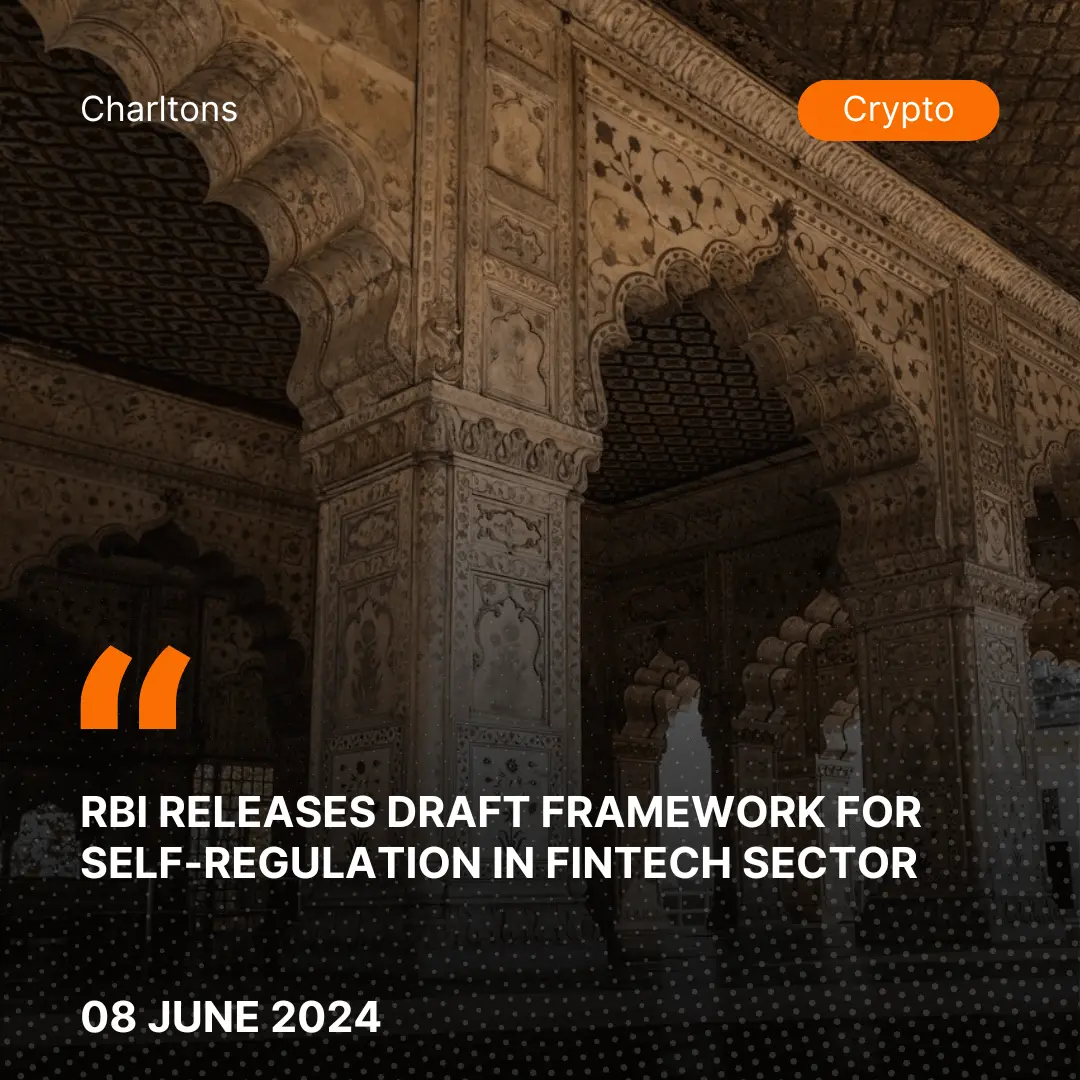
The Reserve Bank of India (RBI) on 30th May 2024 unveiled a Draft Framework for Self-Regulatory Organization(s) (SROs) in the FinTech sector, aiming to bolster risk management, client protection, cybersecurity, and the integrity of the financial system. Released for public consultation, this framework marks a significant step toward structured self-regulation within the rapidly growing FinTech industry.
The guidelines, issued on June 5, 2024, propose a comprehensive structure for self-regulation, allowing FinTech companies to align with industry standards and best practices. The framework seeks to balance the innovative potential of FinTechs with the necessity of minimizing their unique risks to the financial system.
The draft framework emphasizes the importance of a culture of self-governance within the FinTech sector, encouraging entities to proactively set and adhere to industry standards while demonstrating a commitment to responsible conduct and innovation.
Key areas covered in the guidelines include:
- Requirements for Application
- Membership Criteria
- Standard Setting
- Developmental Aspects
- Self-Disclosure and Transparency
- Governance and Management
The framework will be refined based on feedback from stakeholders, with the RBI aiming to collaborate with FinTech entities to foster innovation and create a more stable and secure financial ecosystem in India.
According to the document, SROs refer to self-regulatory organizations designed to create an effective regulatory approach for a specific industry. SROs establish goals and objectives that align with those of the sectoral regulator, allowing industries to collectively set and adhere to standards and rules of conduct. In the context of the FinTech sector, SROs will support efficient operations and ethical growth while upholding transparency, accountability, and compliance.
The governing bodies of SROs are tasked with ensuring professional management and adherence to high governance standards. They must possess the necessary legal and technical expertise to oversee operations and decisions. The governing body should monitor the “fit and proper” status of its directors, address conflicts of interest, and clearly outline criteria for membership processes.
Independence is crucial for the SRO governing body, which must remain free from the influence of any single member or group to ensure impartial decision-making. This unbiased oversight will help maintain the integrity and effectiveness of self-regulation within the FinTech sector.
The RBI’s initiative to introduce this draft framework reflects a proactive approach to managing the dynamic FinTech landscape, aiming to secure a balanced environment that encourages innovation while safeguarding the interests of all stakeholders.
The implementation of the Draft Framework for SROs is poised to significantly impact the Indian FinTech sector. By establishing clear guidelines for self-regulation, the framework will help FinTech companies enhance their compliance with industry standards, thereby improving overall client protection and cybersecurity measures. This move is expected to build greater trust among consumers and investors, leading to increased adoption of FinTech services.
Additionally, the framework’s focus on risk management and governance will ensure that FinTech companies operate with higher levels of transparency and accountability. This could attract more investments into the sector and facilitate the entry of new participants, ultimately driving innovation and competition within the market.





